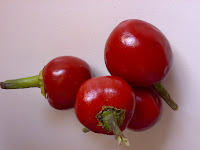Award Bisiach Ivan Marin Ivan Crico 
OF JOHN FIERRO
Little - October 16, 2009 page 12
Section: GORIZIA
For the poet and painter Ivan jack and an important moment. His most recent poetry collection, "De-zu ARZENTO D'argento disappeared", published by the Institute of History Julian, Culture and Documentation, has been awarded the "National Award Biagio Marin" 2009 edition, by quasi vent'anni il maggior premio dedicato alla poesia nei dialetti e nelle lingue minoritarie in Italia. La vittoria di Crico è giunta ad ex aequo con il poeta brianzolo Piero Marelli, e la sua silloge “I nocc-Le notti”, edita da Lieto Colle. Per Crico, vissuto da sempre a Pieris e ora trasferitosi a Tapogliano, questo riconoscimento è una ulteriore conferma della sua ricerca artistica, che con l’uso e lo studio del dialetto bisiàc, lo ha già da tempo portato all’attenzione di pubblico e critica nazionali. La cerimonia di consegna del premio si terrà a Grado, domani alle 17.30 nella sala consiliare del Municipio.
Crico, cosa significa vincere questo premio?
Questo premio mi sembra, First, an unexpected ray of light on my work but also, indirectly, on what many of my very valid peers whose work has not been explored with due care in recent decades of our national critics. A vacuum should be filled as soon as possible, even for the public to understand that there is still a living poem, a matter in Italy, full of beauty and hope. And that much is done and a lot will, I'm sure.
What is the need of today to write in dialect?
There are areas where these old clips are almost extinct, others, like us, in which these languages, though modernized, of course, are still very much alive. For those who have learned how Bisiach first and then the Italian - and, more importantly, Bisiach is expressed every day - is a natural choice. In doing so, also help to keep alive in ourselves and in others the image of a world full of faces, sounds, colors, smells different: a world that is opposed to the deserts of nowhere approval.
And his strength? And perhaps open new worlds of feeling and evocation? A look at 'other'?
Compared to the national languages, absorb the local languages, which are formed in places, many special features. Not only are the result of man's mind but of the encounter / clash between man and nature that surrounds it. These languages \u200b\u200bwere born without the mediation of power and therefore, in them lies intact subversive of life that is never equal to itself, which constantly becomes 'different' from what was, mobile, elusive, impatient each definition.
There is a need to make every dialect of a language?
Each dialect can potentially become the national language and national language can be transformed into each dialect. History teaches. It depends on what perspective you look at things. Dante has turned the Florentine vernacular language in a prominent, Pasolini Casarsa the country, spoken only by poor farmers for centuries, in a language refined. The nobiltà di una lingua dipende dalla nobiltà del pensiero di chi la impiega.
In ‘Piture’, c’è una fondamentale presenza dei colori (azzurri, viola, rossi, neri…). Ha trasportato su carta il suo dipingere?
Sono un pittore e guardo le cose con gli occhi di un pittore, non potrebbe essere altrimenti; ma scrivo per dire ciò che con i pennelli, con il silenzio dei colori non potrei mai dire.
Il paesaggio è protagonista degli scritti che compongono ‘Piture’, come mai? Cosa vede in lui?
Il paesaggio rappresenta tutto ciò che sta al di fuori dell'uomo, oltre l'uomo. Simboleggia ciò che non possiamo sapere, il mistero immense that surrounds us. The limits of our thinking that everyone would like to dominate, control, and that actually know almost nothing of himself, let alone, know what is around.
What role does writing, poetry in particular, in our present? And in his daily life?
beautiful answer quoting the Nobel prize for poetry Seamus Heaney: "I think the role of the poet has to do with the survival of man's deepest interiority. The poets must help people to maintain confidence in their future. " It connects
his poetry, thought, or just to feel? What is your creative act, its direction? The study
fundamental for me. But I never write unless I feel vibrate inside me, living the words. On the bright trail of Holderlin, Rilke, Char, Jabes, Celan - authors whose work accompanies almost all my days - I guess a poem in perpetual journey, in which knowledge and sentiment must necessarily go hand in hand, in the words of a medieval text, " Starting in early through early that they never end. "
For this writer, the word is a hoax, or truth?
Words are seeds. We do not know if these seeds will be able to generate the result that they hide themselves. The only thing we know is that if you do not plant them, of course, the result will never see the light. The artist's life is not but this dark, silent patient sowing dreams. Nostalgia, irrepressible, something that does not exist yet.



































